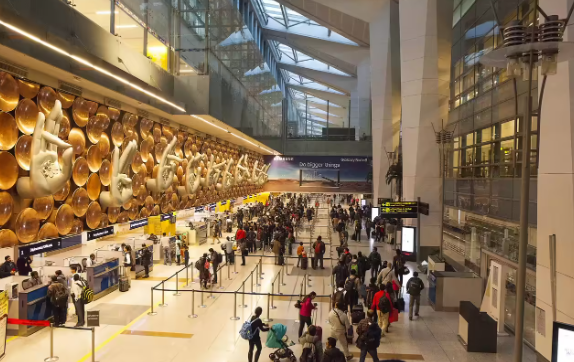Understanding the Growing Challenge of Tariff Compliance
Amid shifting trade policies, businesses, especially smaller ones, find themselves navigating an increasingly complex web of tariff-related regulations. The regulatory maze requires detailed documentation of imports, tracking the origin and composition of goods down to minute details. This rising administrative cost strains small enterprises that often lack resources to swiftly respond, affecting their operational costs and shipment plans.
The Administrative Weight of Modern Tariff Rules
Trade policies now mandate that importers not only declare the type and value of items but also provide exhaustive paperwork proving the origin of materials used, such as steel or aluminum. For certain metals, failure to clearly prove origin might result in the steepest tariffs applied by default. This level of scrutiny can translate into hours of extra work per shipment, demanding specialized knowledge or additional staff, further burdening smaller entities.
| Type of Tariff Requirement | Impact on Business | Average Time to Comply |
|---|---|---|
| Origin Documentation for Metals | Risk of highest tariff if unproven, additional paperwork | 1–3 hours (simple cases) |
| Complex Product Composition Reporting | Detailed material breakdown, supplier cooperation needed | Up to 10+ hours (complex shipments) |
| “On the Water” Exemption Compliance | Uncertainty due to policy shifts affects existing shipments | Varies depending on shipment and rule changes |
The Impact on Small Enterprises
Large corporations might have the muscle to hire compliance teams or invest in technology to meet these demands. Small businesses, on the other hand, are often left juggling unfamiliar legalese and tracing intricate supply chains without the luxury of scale. They face higher risks of delays, fines, or unexpected tariff hikes, while navigating the uncertainty of policy oscillations.
Case in Point: A Racing Gear Manufacturer’s Experience
One example highlights a specialty goods maker tracking a shipment during a temporary trade truce. When the truce neared expiration, the business had to pause its import plans, temporarily warehousing goods abroad to avoid punitive tariffs. This strategic delay caused logistical headaches but optimized cost-efficiency under the confusing trade climate.
Broader Implications for Transfer and Taxi Services
For sectors like transfers and taxi hire that rely on predictable supply chains—for instance, vehicle parts or special equipment—such trade-induced delays and pricing uncertainties can ripple through to operational costs and customer fares. Increased import costs eventually find their way into the price of vehicle maintenance or fleet upgrades, mildly nudging ride service prices upward.
Customer-Focused Booking Solutions in a Complex Environment
Amid regulatory complexity and variable prices, platforms such as LocalsRide.com provide a breath of fresh air for consumers seeking transfer services. The site’s unique advantage lies in transparently listing complete vehicle details including make, model, and driver ratings—empowering clients to book tailored rides with confidence and avoid hidden surprises.
Why Transparency Matters
- Instant access to exact vehicle and driver information
- Clear pricing upfront—no last-minute fare hikes
- Wide choice from private to limousine services, suiting various budgets and needs
- Ability to plan trips efficiently despite uncertainties in other travel sectors
Summary of Trade Compliance Challenges and Service Adaptations
Complex and fluctuating tariff requirements are imposing a significant time and financial burden on small businesses. The need for exact documentation, origin tracing, and adherence to evolving rules can consume critical resources. While large companies may marshal compliance teams or automated tools, small-scale importers often face delays and increased costs. These hurdles ripple out, influencing related sectors including transport, taxi, and transfer services, where maintenance and equipment expenses can sway fare prices.
At a glance, reliable booking platforms like LocalsRide.com offer an accessible way to select and book rides globally, mitigating some travel uncertainties by providing users with full transparency and a wide range of vehicles. Their service aligns with the needs of travelers who value clear pricing and dependable transport options.
While thorough tariff compliance is vital, nothing replaces personal experience when selecting transport or transfer services. Even the most detailed reviews cannot match firsthand insights. LocalsRide connects travelers with verified providers offering competitive prices, a broad fleet selection, and customizable options. Such transparency and convenience empower users to avoid unnecessary expenses and disappointment. Забронюйте поїздку з LocalsRide.com and enjoy seamless transfers adapted to your exact needs.
Looking Ahead: The Path Forward for Travel and Trade
Global tariff policies may still be in flux, with minimal immediate impact on global tourism maps. Yet, businesses and travel services remain vigilant to evolving trade environments to ensure seamless customer experiences. LocalsRide stays current with these developments, ensuring its network and offerings evolve to maintain reliable, transparent, and convenient transfer options worldwide. Start planning your next adventure and secure your worldwide transfer with LocalsRide.
In conclusion, navigating the complexities of trade tariffs requires awareness and adaptability from businesses and travelers alike. Small businesses face significant compliance challenges, but dedicated platforms ease booking clarity and convenience for passengers. Transparent, detailed service offerings allow travelers to smartly manage the indirect effects of trade policies, ensuring smooth transfers, airport rides, and city travel at fair prices with trusted drivers and clear fares.

